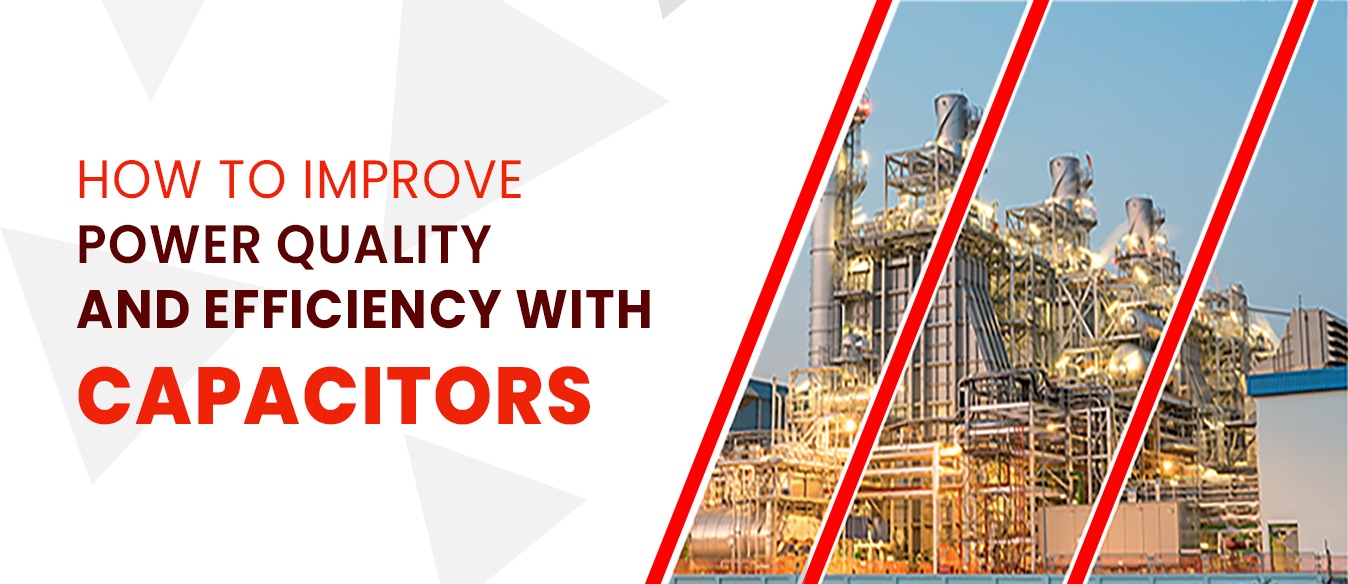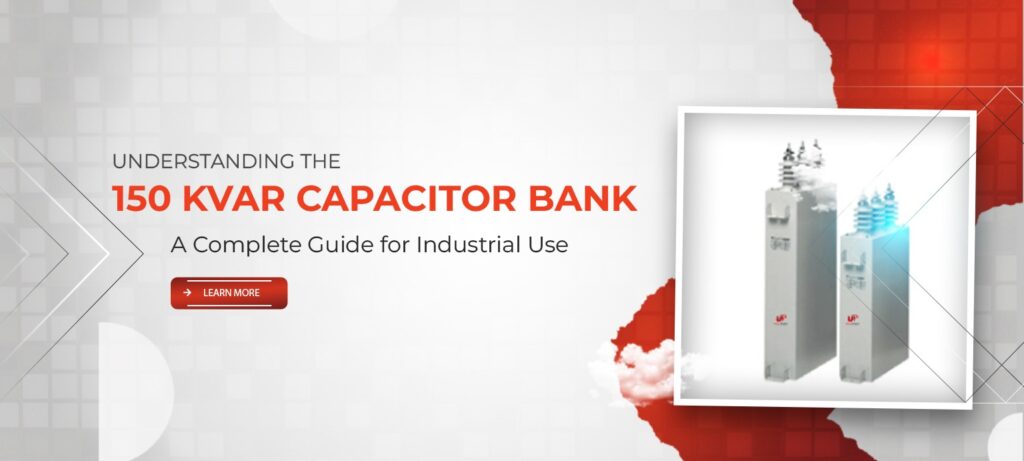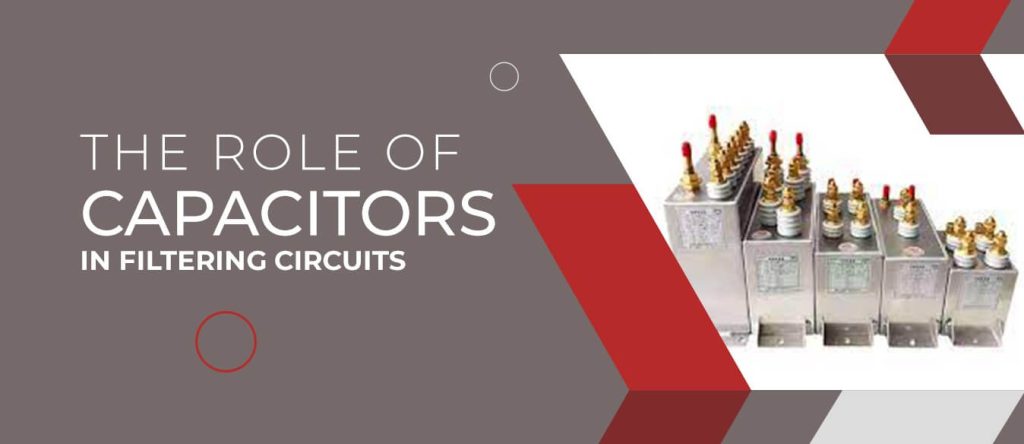Power quality and efficiency are two important aspects of any electrical system. Power quality refers to the degree of conformity of the voltage, current, and frequency to their ideal values. Power efficiency refers to the ratio of useful power output to the total power input. Both power quality and efficiency can be affected by the power factor, which measures how effectively the electrical system uses the power it draws from the grid.
A low power factor indicates that the system is drawing more power than it needs, resulting in wasted energy, higher costs, and reduced capacity. A high power factor indicates that the system is using the power it draws efficiently, resulting in energy savings, lower costs, and increased capacity. One of the most common and effective ways to improve the power factor, and consequently the power quality and efficiency, is by using capacitors.
What are Capacitors and How Do They Work?
Capacitors are electronic devices that can store and release electrical energy. They consist of two conductive plates separated by an insulator. When a capacitor is connected to an alternating current (AC) source, it charges and discharges periodically, creating a current that is leading the voltage by 90 degrees. This current is called capacitive reactive power, and it can be used to offset the inductive reactive power that is generated by other devices in the system, such as motors, transformers, and lighting.
Inductive reactive power is the current that is lagging the voltage by 90 degrees, and it represents the energy that is stored and released by the magnetic fields of the devices. Inductive reactive power does not contribute to the useful work done by the system, but it still consumes power from the grid. Therefore, it reduces the power factor and the efficiency of the system.
By introducing capacitors to the system, the capacitive reactive power can cancel out the inductive reactive power, resulting in a reduced total reactive power and an improved power factor. This means that the system can draw less power from the grid for the same amount of useful work, increasing the efficiency and reducing the costs. It also means that the system can have a better voltage profile and less power loss, improving the power quality.
What are the Benefits of Using Capacitors?
Using capacitors to improve the power factor, and consequently the power quality and efficiency, can have several benefits for the electrical system and the users. Some of the main benefits are:
Energy Savings: By reducing the reactive power, capacitors can help the system consume less power from the grid, resulting in lower energy bills and reduced carbon footprint.
Increased Capacity: By improving the power factor, capacitors can help the system free up some of the capacity that was previously occupied by the reactive power, allowing more useful power to be delivered to the loads or more loads to be added to the system without overloading the grid.
Improved Power Quality: By correcting the power factor, capacitors can help the system maintain a stable and optimal voltage level, reducing the voltage drops, flickers, and harmonics that can affect the performance and lifespan of the devices and equipment.
Reduced Power Loss: By enhancing the power factor, capacitors can help the system reduce the power loss that occurs due to the resistance of the wires and cables, increasing the efficiency and reliability of the system.
How to Choose and Install Capacitors?
Choosing and installing capacitors to improve the power factor, and consequently the power quality and efficiency, requires careful planning and analysis. Some of the factors that need to be considered are:
The type and size of the capacitors: There are different types of capacitors available, such as fixed, variable, or automatic, that can be used for different applications and purposes. The size of the capacitors depends on the amount of reactive power that needs to be compensated and the desired power factor. The capacitors should be rated for the voltage and frequency of the system, and have adequate protection and control devices.
The location and configuration of the capacitors: There are different ways to connect the capacitors to the system, such as at the source, at the load, or in between. The location and configuration of the capacitors affect the performance and effectiveness of the power factor correction. The capacitors should be installed as close as possible to the source of the reactive power, and in parallel with the loads. The capacitors should also be balanced and distributed among the phases of the system, and avoid resonance and overcompensation.
The maintenance and testing of the capacitors: The capacitors should be regularly inspected and tested to ensure their proper functioning and safety. The capacitors should be checked for signs of damage, leakage, overheating, or aging, and replaced or repaired if necessary. The capacitors should also be tested for their capacitance, resistance, and power factor, and calibrated or adjusted if needed.
The Bottom Line
Capacitors are electronic devices that can improve the power factor, and consequently the power quality and efficiency, of an electrical system. By using capacitors, the system can reduce the reactive power, increase the capacity, improve the voltage profile, and reduce the power loss. This can result in energy savings, lower costs, better performance, and longer lifespan of the devices and equipment. However, choosing and installing capacitors requires careful planning and analysis, and regular maintenance and testing, to ensure the optimal results and benefits.
If you are looking for a reliable and experienced partner to provide you with high-quality capacitors and power factor correction solutions, you can trust Usha Power. Usha Power is a leading manufacturer and supplier of capacitors and power-quality products in India, with experience and expertise. Usha Power offers a wide range of capacitors for various applications and industries, such as industrial and commercial. Usha Power also provides customized solutions to meet your specific needs and requirements. Usha Power is committed to delivering excellence in customer service, product quality, and technical support. Contact Usha Power today and discover how they can help you improve your power quality and efficiency with capacitors.




